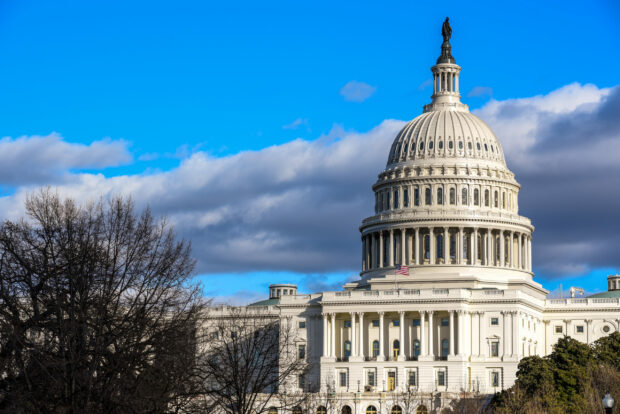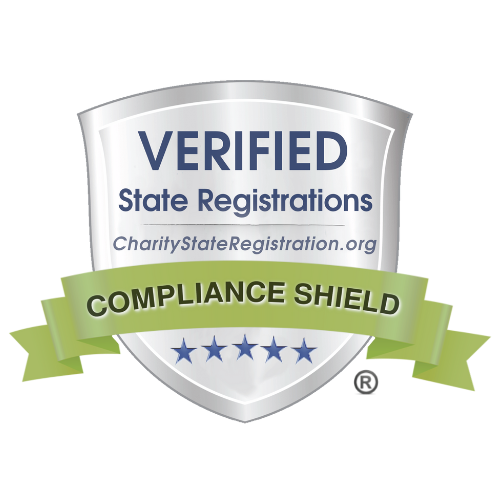IAVA | October 28, 2015
Read: Statement of IAVA before the SVAC hearing on VA Mental Health: Ensuring Access to Care

Statement for the Record
by Jacqueline Maffucci, Ph.D.
Research Director
of
Iraq and Afghanistan Veterans of America
before the
Senate Committee on Veterans’ Affairs
hearing on
VA Mental Health: Ensuring Access to Care
October 28, 2015
Chairman Isakson, Ranking Member Blumenthal and Distinguished Members of the Committee, on behalf of Iraq and Afghanistan Veterans of America (IAVA) and our more than 425,000 members and supporters, we would like to extend our gratitude for the opportunity to share our views on VA Mental Health: Ensuring Access to Care.
In March 2014, IAVA launched its Campaign to Combat Suicide, a direct result of our members continually identifying mental health and suicide as the number one issue facing the newest generation of veterans. This campaign was centered around the principle that timely access to high quality mental health care is critical in the fight to combat veteran suicides. The signing of the Clay Hunt SAV Act into law was an important first step to addressing this. IAVA continues to work with Congress and the VA to fully implement this law, but there is still much work to be done.
Every year IAVA surveys our members about their health experiences, among other issues. In our most recent survey, about half of IAVA’s survey respondents reported having a mental health injury, and a little less than 60 percent were seeking care for these injuries from a VA provider. Over 70 percent of those using VA mental health care reported satisfaction with that care, but an almost equal percentage of respondents reported having some level of challenge scheduling VA mental health appointments. This is compared to only 31 percent of those using non-VA mental health care reporting scheduling challenges. Bottomline, our members have told us both through the survey and anecdotally that access to mental health care continues to be a challenge, but once in care, they are satisfied. No veteran should have to wait for mental health care once they take that difficult step to seek help. And this is where the topic of access becomes so very critical.
Clay Hunt was one of these veterans. Clay sought help at the VA but was repeatedly frustrated by challenges in scheduling appointments and consistent care. He was a Marine who even after being injured signed up to deploy for a second time. Once he separated from the Marines, he became a veteran advocate, working with IAVA, and participated in humanitarian work with Team Rubicon. Despite his proactive and open approach to seeking mental health care, he lost hope and took his life on March 31, 2011. Access to care is critical.
There is a shortage of mental health care professionals in this country. The supply is waning while the demand for mental health services is growing, as highlighted by Clay’s story. Specific to the veteran community, almost 30 percent of new veterans treated at the VA have been diagnosed with Post-Traumatic Stress Disorder and 57 percent have some form of a mental health injury. The demand among the new generation of veterans will likely continue to grow as more troops come home and those already home continue transition to civilian life. And we cannot discount potential growth in demand among all veterans. The nation must be prepared to care for these veterans for decades to come, both in and out of the VA.
The Secretary and this Administration are working to encourage medical students into mental health professions, and this must continue to grow the field. However, there are barriers already in place that make it difficult for the VA to both hire and retain these professionals. The application process and the lengthy wait time to be hired into the federal government can be a huge deterrent in attracting talented professionals. A recent VA Office of Inspector General Report looked specifically at hiring and loss rates of VA psychologists, determined to be a critical needs occupation. The report found that a significant percentage of the total gains from hiring was offset by losses. Given the amount of training and the continued demand for these professionals, the VA must understand and address the reasons that these staff leave.
The VA also needs to continually assess and update its use of staffing models and guidelines surrounding the hiring of these mental health specialities at the facility level. IAVA believes that there is an opportunity for an innovative approach to develop more predictive models of need that can better inform these staffing models. There are examples of this type of data driven approach to understanding characteristics of the veteran population already in process that could drive this concept, like the Veteran Data Project led by the Center for New American Securities.
As the VA continues to focus on staffing models, it must also get away from grouping mental health professionals as one category when focusing on hiring initiatives, and more specifically focus on the needs for each discipline. Each have a unique skill set and the demand and targeted hiring for these must be determined in their own right.
There are additional constraints that also must be considered. Paramount to all of these recommendations is the need for better data within the VA to define the current demand. This will come as the VA replaces its extremely outdated scheduling system, an initiative in place but not yet fully implemented. Additionally, as demand increases and additional staff are required, there is an impact on resources, including facility space.
Outside of the staffing component, there are three additional areas that warrant focus to address access to care:
1) Telemental health: The VA should be commended for its work in introducing and developing its telemental health program. IAVA sees this initiative as one that is able to fill the gaps in communities that have critical shortages in mental health professionals. We look forward to working with the VA to continue to continue to develop, assess and expand this program to ensure that it is providing high quality mental health care to veterans particularly in areas that are geographically isolated and/or experiencing severe mental health staffing shortages in the community and the VA.
2) Vet Centers: Since 2003, the VA has expanded the number of Vet Centers, and currently 300 exist. Vet Centers continue to be a highly praised resource among IAVA’s member population. They fill a specific need among the veteran population, including serving family members, hosting later hours and serving the veteran population regardless of discharge status. IAVA would like to see a comprehensive assessment of the role the Vet Centers play, the demand for these services and a determination of whether the current number of vet centers is addressing that demand. We feel that this is a critical resource, particularly to veterans who may not be inclined to seek services at the VA health centers.
3) The Role of Community Providers: Approximately 60 percent of new veterans, and less than 40 percent of the entire veteran population, is seeking care at the VA. The care of this nation’s veterans is not the sole responsibility of the VA, but rather the community at large. And yet, as community providers are called upon to serve this population, a recent RAND report suggests that community providers might not be well equipped to address the needs of veterans and their families, specifically in understanding high quality treatments for PTSD and other mental health injuries. Pilots such as the VA/Community Mental Health Partnership can help to provide a framework for how public-private partnerships can address this skills gap.
At IAVA, we believe our members, and all veterans, deserve the very best our nation can offer when it comes to fulfilling the promises made to them upon entry into the military. There is no doubt every Member of this Committee has the best interests of our veterans at heart. We look forward to continuing to work with you and the Administration as partners in trying to address these very real challenges with innovative and scalable solutions.
Thank you for your time and attention. IAVA is happy to answer any questions you may have.
Biography of Jacqueline Maffucci, Ph.D.
Research Director, Iraq and Afghanistan Veterans of America
Jacqueline Maffucci is the Research Director for Iraq and Afghanistan Veterans of America. She holds a Bachelor of Science from Cornell University and a Doctorate of Philosophy in Neuroscience from The University of Texas at Austin. Prior to her position at IAVA, Dr. Maffucci spent nearly four years as a consultant to the Pentagon focusing on behavioral health policy for the Army. This included over two years spent on the Army Suicide Prevention Task Force. Among other responsibilities, she acted as the liaison to the Department of Defense research community working to translate research into policy. Additionally, she was Editor in Chief for The Journal of Washington Academy of Sciences from 2010-2013.
Dr. Maffucci currently serves on the National Center for PTSD Education Advisory Board and the Department of Veterans Affairs Women’s Health CREATE Veterans Council and the National Academic Affiliations Council. In her free time, she also works as a professional dog trainer in the community and has recently expanded to volunteer with Pets4Vets to identify companion animals for veterans and paws4ves as a puppy raiser for service dogs in training.





